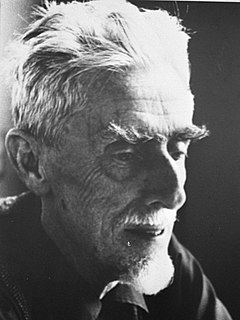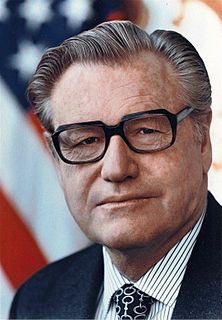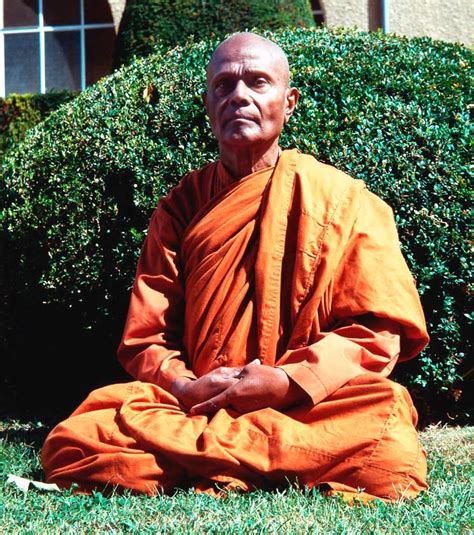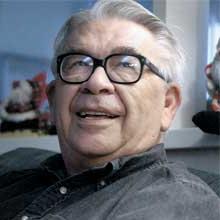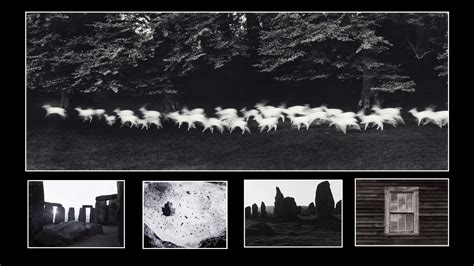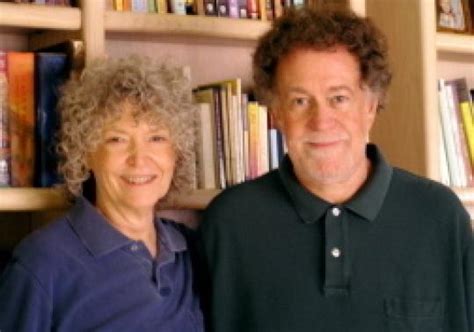Top 1081 Concepts Quotes & Sayings - Page 17
Explore popular Concepts quotes.
Last updated on December 22, 2024.
Christianity, like genius, is one of the hardest concepts to forgive. We hear what we want to hear and accept what we want to accept, for the most part, simply because there is nothing more offensive than feeling like you have to re-evaluate your own train of thought and purpose in life. You have to die to an extent in your hunger for faith, for wisdom, and quite frankly, most people aren't ready to die.
The time must come inevitably when mankind shall surmount the imbecility of religion, as it has surmounted the imbecility of religion's ally, magic. It is impossible to imagine this world being really civilized so long as so much nonsense survives. In even its highest forms religion embraces concepts that run counter to all common sense. It can be defended only by making assumptions and adopting rules of logic that are never heard of in any other field of human thinking.
To tell you the truth, I am rather perplexed by the concept of 'art'. What one person considers to be 'art' is often not 'art' to another. 'Beautiful' and 'ugly' are old-fashioned concepts that are seldom applied these days; perhaps justifiably, who knows? Something repulsive, which gives you a moral hangover, and hurts your ears or eyes, may well be art. Only 'kitsch' is not art - we're all agreed about that. Indeed, but what is 'kitsch'? If only I knew!
I think time is a constraint to destroy and then reinvent. If you give me a constraint, I'll accept it. But I always try to move it around, or to readapt it. Ecco! If you lock me in a room, well I'll go out through the window! I always remember Achille Castiglioni, one of my mentors, and he always said that in industrial design you have the idea, the fantasy, the concepts - that's the marmalade! - but the constraint of the brief is the bread. You need both in order to find structure for your ideas.
God is one among several hypotheses to account for the phenomena of human destiny, and it is now proving to be an inadequate hypothesis. To a great many people, including myself, this realization is a great relief, both intellectually and morally. It frees us to explore the real phenomena for which the God hypothesis seeks to account, to define them more accurately, and to work for a more satisfying set of concepts.
Someone asked me very recently why I have 8 million views on TED - "your work resonates, what are you doing?" What I think my contribution is, what I do well, is I name experiences that are very universal that no one really talks about. That's the researcher in me; that's really part of being a grounded theory researcher - putting names to concepts and experiences that people have. That's the researcher part.
I want to shout out the stars on the walk of fame because they said something about they're not going to put my girl on the Walk of Fame because she's a reality star. It's like, people are so so dated and not modern. There's no way that Kim Kardashian should not have a star on the Walk of Fame. It's ridiculous concepts. I'm just going to give y'all the truth and you're just going to love it.
... one of the main functions of an analogy or model is to suggest extensions of the theory by considering extensions of the analogy, since more is known about the analogy than is known about the subject matter of the theory itself ... A collection of observable concepts in a purely formal hypothesis suggesting no analogy with anything would consequently not suggest either any directions for its own development.
I do not want to presuppose anything as known. I see in my explanation in section 1 the definition of the concepts point, straight line and plane, if one adds to these all the axioms of groups i-v as characteristics. If one is looking for other definitions of point, perhaps by means of paraphrase in terms of extensionless, etc., then, of course, I would most decidedly have to oppose such an enterprise. One is then looking for something that can never be found, for there is nothing there, and everything gets lost, becomes confused and vague, and degenerates into a game of hide and seek.
I think that I would really like at first for the art to speak for itself. I don't see the need for a lot of personal information about my past or who I am. I would rather the personal side of it just be in the concepts and the genuine feelings that I filter through my work. I know that it's inevitable that people can find whatever they want about me. Once I've had a chance to create a language and a world with my art, then I'm more comfortable sharing that information.
A child in his earliest years, when he is only two or a little more, is capable of tremendous achievements simply through his unconscious power of absorption, though he is himself still immobile. After the age of three he is able to acquire a great number of concepts through his own efforts in exploring his surroundings. In this period he lays hold of things through his own activity and assimilates them into his mind.
But the most heinous crime of the Church has been perpetrated not against churchmen but against churchgoers. With its poisonous concepts of sin and divine punishment, it's warped and brainwashed countless millions. It would be impossible to calculate the psychic damage this has inflicted on generations of children who might have grown up into healthy, happy. productive, zestful human beings but for the burden of antisexual fear and guilt ingrained in them by the Church. This alone is enough to condemn religion.
The friends of Job appear on the scene as advisers and "consolers," offering Job the fruits of their moral scientia. But when Job insists that his sufferings have no explanation and that he cannot discover the reason for them through conventional ethical concepts, his friends turn into accusers, and curse Job as a sinner. Thus, instead of consolers, they become torturers by virtue of their very morality, and in so doing, while claiming to be advocates of God, they act as instruments of the devil.
The United Nations, he told an audience at Harvard University, 'has not been able-nor can it be able-to shape a new world order which events so compellingly demand.' ... The new world order that will answer economic, military, and political problems, he said, 'urgently requires, I believe, that the United States take the leadership among all free peoples to make the underlying concepts and aspirations of national sovereignty truly meaningful through the federal approach.'
Evolutionists ... have a prior commitment, a commitment to materialism. It is not that the methods and institutions of science somehow compel us to accept a material explanation of the phenomenal world, but, on the contrary, that we are forced by our a priori adherence to material causes to create an apparatus of investigation and a set of concepts that produce material explanations, no matter how counter-intuitive, no matter how mystifying to the uninitiated. Moreover, that materialism is absolute, for we cannot allow a Divine Foot in the door.
Students using astrophysical textbooks remain essentially ignorant of even the existence of plasma concepts, despite the fact that some of them have been known for half a century. The conclusion is that astrophysics is too important to be left in the hands of astrophysicists who have gotten their main knowledge from these textbooks. Earthbound and space telescope data must be treated by scientists who are familiar with laboratory and magnetospheric physics and circuit theory, and of course with modern plasma theory.
Biblical higher criticism is preserved in the particular enclave of academic Christian scholarship and is thought to be too unfruitful to share with the average pew-sitter, for it raises more questions than the church can adequately answer. So the leaders of the church would protect the simple believers from concepts they were not trained to understand. In this way that ever-widening gap between academic Christians and the average pew-sitter made its first appearance.
Iconography becomes even more revealing when processes or concepts, rather than objects, must be depicted for the constraint of a definite "thing" cedes directly to the imagination. How can we draw "evolution" or "social organization," not to mention the more mundane "digestion" or "self-interest," without portraying more of a mental structure than a physical reality? If we wish to trace the history of ideas, iconography becomes a candid camera trained upon the scholar's mind.
The significance of God, cause, number, substance or soul consists, as James asserts, in nothing but the tendency of the given concept to make us act or think. If the world should reach a point at which it ceases to care not only about such metaphysical entities but also about murders perpetrated behind closed frontiers or simply in the dark, one would have to conclude that the concepts of such murders have no meaning, that they represent no 'distinct ideas' or truths, since they do not make any 'sensible difference to anybody.
We learn that Comrade [President of South Africa Nelson] Mandela has announced in a speech that he hopes for a bright future in South Africa for ‘liberty’ and ‘equality.’ Anyone who has thought about it realizes that liberty and equality are antithetical concepts. You can have one, or you can have the other, but you certainly cannot have both. As to that, either concept is a rather futile goal. Equality is biologically impossible, and liberty is only obtainable in homogeneous populations very thinly spread.
Whenever Muslim women protest and ask for their rights, they are silenced with the argument that the laws are justified under Islam. It is an unfounded argument. It is not Islam at fault, but rather the patriarchal culture that uses its own interpretations to justify whatever it wants. It utilizes psychology to say that women are emotional. It utilizes medical science to say that men's brains are formed in such a way that they are better able to understand concepts. These are all hypotheses. None of this has been proven.
When you put a halo on concepts - gender roles, religion, nationality or pride - or you put a halo on any topic - anything that you hold dear like the relationship between a father and son or a mother and daughter, what it means to be married or what it means to be single or what it means to be a free spirit or what it means to be an artist - if you just put a halo on something and say it's untouchable - "that is special and that is perfect" - you immediately close your eyes to the truth of it, because the truth is that nothing is perfect.
I have always been really picky about the films that I make, because I think that there's such an incredible opportunity to bring up questions when you're making movies, and some of my favorite films bring up big questions. They are movies that, when you walk away from it, it hits you as something deeper, and it's a great, fun way to be able to bounce around some of these harder concepts in our heads.
There are no idealists in the plant world and no compassion. The rose and the morning glory know no mercy. Bindweed, the morning glory, will quickly choke its competitors to death, and the fencerow rose will just as quietly crowd out any other plant that tried to share its roothold. Idealism and mercy are human terms and human concepts.
As far as a theoretical point of view for my generation, I'm probably the most successful theoretician. I mean, double albums and concepts and dresses and major disasters and wonderful successes and yet you don't see the critical review of my work. Why? Because it's all focused on the persona. Billy Corgan. But I get to sort of jump in and be Billy Corgan. But then I get to sort of jump back out and be like, sensitive man in the corner.
Somebody said recently that the best thing a student could do was to get in some shows and publish a book; but nothing about becoming a human being, nothing about having important feelings or concepts of humanity. That's the sort of thing that is bad education. I'd say be a human being first and if you happen to wind up using photography, that's good for photography.
Black Girl Magic is a radiant revolution against misogynoir - misogyny directed towards Black women and internalized hatred. Black women are subject to so many societal messages that tell them they are not beautiful, smart, or capable. Black Girl Magic is the conscious unraveling of those toxic concepts through self-love and acceptance. It preaches that despite the pressures I face, I glow more than ever before.
Knowledge, in so far as it is directed to practical matters, has only to enumerate the principal possible attitudes of the thing towards us, as well as our best possible attitude towards it. Therein lies the ordinary function of ready-made concepts, those stations with which we mark out the path of becoming. But to seek to penetrate with them into the inmost nature of things, is to apply to the mobility of the real a method created in order to give stationary points of observation on it.
DUE TO OUR FEELINGS ARISING FROM CONTACT, we think and we rationalize, conceptualize, theorize, philosophize and speculate. Because of the feeling arising from the six senses, we increase our desire; we come to wrong views and wrong beliefs. We recall our past sights, smells, sounds, tastes, touches and ideas and build up more desires, thoughts, concepts, beliefs, ideas, theories and philosophies.
Institutional psychiatry is a continuation of the Inquisition. All that has really changed is the vocabulary and the social style. The vocabulary conforms to the intellectual expectations of our age: it is a pseudo-medical jargon that parodies the concepts of science. The social style conforms to the political expectations of our age: it is a pseudo-liberal social movement that parodies the ideals of freedom and rationality.
When certain concepts of TeX are introduced informally, general rules will be stated; afterwards you will find that the rules aren't strictly true. In general, the later chapters contain more reliable information than the earlier ones do. The author feels that this technique of deliberate lying will actually make it easier for you to learn the ideas. Once you understand a simple but false rule, it will not be hard to supplement that rule with its exceptions.
We have known the bitterness of defeat and the exultation of triumph, and from both we have learned there can be no turning back. We must go forward to preserve in peace what we won in war. A new era is upon us. Even the lesson of victory itself brings with it profound concern, both for our future security and the survival of civilization. The destructiveness of the war potential, through progressive advances in scientific discovery, has in fact now reached a point which revises the traditional concepts of war.
The solutions put forth by imperialism are the quintessence of simplicity...When they speak of the problems of population and birth, they are in no way moved by concepts related to the interests of the family or of society...Just when science and technology are making incredible advances in all fields, they resort to technology to suppress revolutions and ask the help of science to prevent population growth. In short, the peoples are not to make revolutions, and women are not to give birth. This sums up the philosophy of imperialism.
When you write a business fable, people get caught up in the story and don't get judgmental about what you're teaching them. If you're teaching a bunch of concepts, people get skeptical and say, 'Where'd you get that research?' But if you tell them a story, they get caught up in it while they learn.
I would be ok if I found out for sure that if I am in any way superior to a wolf it is simply in virtue of my brain's higher capacity and complexity. A large difference - my cerebral equipment allows me to have such diverse concepts as "hope", "funky", "England", "multiplication", "three strikes" and "the categorical imperative" - but a difference in degree. Wolves, of course, are superior to me with regards to smelling, hearing, and running, and are generally superior to humans in that they don't kill each other.
Relativity was a highly technical new theory that gave new meanings to familiar concepts and even to the nature of the theory itself. The general public looked upon relativity as indicative of the seemingly incomprehensible modern era, educated scientists despaired of ever understanding what Einstein had done, and political ideologues used the new theory to exploit public fears and anxieties-all of which opened a rift between science and the broader culture that continues to expand today.
In the fall, you don't grieve because the leaves are falling and dying. You say, "Isn't it beautiful!" Well, we're the same way. There are seasons. We all fall sooner or later. It's all so beautiful. And our concepts, without investigation, keep us from knowing this. It's beautiful to be a leaf, to be born, to fall, to give way to the next, to become food for the roots. It's life, always changing its form and always giving itself completely. We all do our part. No mistake.
Many spiritual people are involved in a radical denial of what is happening. They want to transcend it, get rid of it, get out of it, get away from it. There's nothing wrong with that feeling, but the approach doesn't work because it's escapism in spiritual clothing. It's wearing spiritual clothing and spiritual concepts, but it is really no different than a drunk in the gutter who doesn't want to feel the pain anymore. When you abide and accept everything completely and fully, you automatically go beyond.
The Illusionist is the storyteller in so many ways. Symbols become his obsession. It's not simply about creating plot - one must also grapple with theme. Nowadays we have a lot of characters and a lot of action but it's hard to sit still and really meditate on meaning, worldviews, concepts, ideologies even. I make my Illusionist do what I've had to do, often with copious amounts of stumbling and frustration. His real humanity comes from being an artist, I think - his creativity is what makes him a man.
We're at a moment when the international system is in a period of change like we haven't seen for several hundred years. In some parts of the world, the nation state, on which the existing international system was based, is either giving up its traditional aspects, like in Europe, or as in the Middle East, where it was never really fully established, it is no longer the defining element. So in those two parts of the world, there is tremendous adjustment in traditional concepts.
In my judgment the people of no nation can lose their liberty so long as a Bill of Rights like ours survives and its basic purposes are conscientiously interpreted, enforced and respected so as to afford continuous protection against old, as well as new, devices and practices which might thwart those purposes. I fear to see the consequences of the Court's practice of substituting its own concepts of decency and fundamental justice for the language of the Bill of Rights as its point of departure in interpreting and enforcing that Bill of Rights.
Gass once wrote: "Language serves not only to express thought but to make possible thoughts which could not exist without it." Here is the essence of mankind's creative genius: not the edifices of civilization nor the bang-flash weapons which can end it, but the words which fertilize new concepts like spermatozoa attacking an ovum. It might be argued that the Siamese twin infants of word/idea are the only contribution the human species can, will, or should make to the raveling cosmos.
Many, and I think the determining, constitutive facts remain outside the reach of the operational concept. And by virtue of this limitation this methodological injunction against transitive concepts which might show the facts in their true light and call them by their true name the descriptive analysis of the facts blocks the apprehension of facts and becomes an element of the ideology that sustains the facts. Proclaiming the existing social reality as its own norm, this sociology fortifies in the individuals the "faithless faith" in the reality whose victims they are.
The key to longevity is to keep doing what you do better than anyone else. We work real hard at that. It's about getting your message out to the consumer. It's about getting their trust, but also getting them excited, again and again. My clothes.. the clothes we make for the runway.. aren't concepts. They go into stores. Our stores. Thankfully, we have lots of them.
I believe that we can still have a genre of scientific books suitable for and accessible alike to professionals and interested laypeople. The concepts of science, in all their richness and ambiguity, can be presented without any compromise, without any simplification counting as distortion, in language accessible to all intelligent people. I hope that this book can be read with profit both in seminars for graduate students and if the movie stinks and you forgot your sleeping pills on the businessman's special to Tokyo.
Never has America lost a war ... But name, if you can, the last peace the United States won. Victory yes, but this country has never made a successful peace because peace requires exchanging ideas, concepts, thoughts, and recognizing the fact that two distinct systems of life can exist together without conflict. Consider how quickly America seems to be facing its allies of one war as new enemies.
The artist must operate on the assumption that the public consists in the highest order of individual; that he is civilized, cultured, and highly sensitive both to emotional and intellectual contexts. And while the whole public most certainly does not consist in that sort of individual, still the tendency of art is to create such a public - to lift the level of perceptivity, to increase and enrich the average individual's store of values... I believe that it is in a certain devotion to concepts of truth that we discover values.
You are asking, 'Is the concept of soul mates more useful than marriage?' Concepts don't matter. What matters is your understanding. You can change the word marriage to the word soul mates, but you are the same. You will make the same hell out of soul mates as you have been making out of marriage - nothing has changed, only the word, the label. Don't believe in labels too much.
I use biography, I use literary connections (as with Platen - this seems to me extremely helpful for appreciating the nuances of Mann's and Aschenbach's sexuality), I use philosophical sources (but not in the way many Mann critics do, where the philosophical theses and concepts seem to be counters to be pushed around rather than ideas to be probed), and I use juxtapositions with other literary works (including Mann's other fiction) and with works of music.
The only way a work of art can become great is for one to acknowledge that it doesn't belong to anybody. The greatness is in constantly giving back, coming to an acknowledgment of the source. Look back to the source of any individual, any process, any set of materials. If the individual personality can relinquish its insistence on concepts like this is mine, I did it, this is original, nobody else has done it, it goes straight for greatness or the essential spirit.
Failing at something is one thing, but Buddhism tells us that it is up to us how we interpret that failure [Buddhism] a philosophy and way of life that resonates with me I identify with it. I agree with so much of the sentiment behind it. I enjoy the liberating effect it's had on me to get back into the game Buddhism, with its concepts of karma and rebirth, have freed me from the twin fears of death and life without rugby, like life, will also come to an end.
**New business concepts are always, always the product of lucky foresight.** That's right - the essential insight doesn't come out of any dirigiste planning process; it comes form some cocktail of happenstance, desire, curiosity, ambition and need. But at the end of the day, there has to be a degree of foresight -- a sense of where new riches lie. So radical innovation is always one part fortuity and one part clearheaded vision. [first-line bold by author] [2002] p.23
and while faith based on theological reasoning is today universally engaged in a bitter struggle with doubt and resistance from the prevailing brand of rationalism, it does seem that the naked fundamental experience itself, that primal seizure of mystic insight, stripped of religious concepts, perhaps no longer to be regarded as a religious experience at all, has undergone an immense expansion and now forms the soul of that complex irrationalism that haunts our era like a night bird lost in the dawn.
Don't think about why you question, simply don't stop questioning. Don't worry about what you can't answer, and don't try to explain what you can't know. Curiosity is its own reason. Aren't you in awe when you contemplate the mysteries of eternity, of life, of the marvelous structure behind reality? And this is the miracle of the human mind - to use its constructions, concepts, and formulas as tools to explain what man sees, feels and touches. Try to comprehend a little more each day. Have holy curiosity.
Our teaching of mathematics revolves around a fundamental conflict. Rightly or wrongly, students are required to master a series of mathematical concepts and techniques, and anything that might divert them from doing so is deemed unnecessary. Putting mathematics into its cultural context, explaining what is has done for humanity, telling the story of its historical development, or pointing out the wealth of unsolved problems or even the existence of topics that do not make it into school textbooks leaves less time to prepare for the exam. So most of these things aren't discussed.
Everybody gets plagued by indifference and monotony. The truth is, there are concepts that are constantly being repeated in this world, since the beginning of time, but it doesn't seem like any of us have mastered them. So my advice is to keep going with the topic, which usually has to do with redemption, love, compassion, freedom, injustice, perversion, divinity, the diabolical... keep going with your thoughts, and your heart, and push them through to transformation.
To seek Truth is automatically a calling for the innate dissident and the subversive; how many are willing to give up safety and security for the perilous life of the spiritual revolutionary? How many are willing to truly learn that their own cherished concepts are wrong? Striking provocative or mysterious poses in the safety of Internet [social media] is far easier than taking the risks involved in the hard work of genuine initiation.
My conception around being a woman in 2016 has definitely been shifting over the past year, because I feel like I'm proud of womanhood, and I feel attached to it, and at the same time I'm someone who doesn't believe in having a gender binary, and so often times I separate those two concepts in my mind - the concept of being a woman and the concept of being a girl or being female, being kind of attached to a certain gender identity.
I can not 'make my mark' for all time - those concepts are mutually exclusive. 'Lasting effect' is a self-contradictory term. Meaning does not exist in the future and neither do I. Nothing will have meaning 'ultimately.' Nothing will even mean tomorrow what it did today. Meaning changes with the context. My meaningfulness is here. It is enough that I am of value to someone today. It is enough that I make a difference now.
Except during my childhood, when I was probably influenced by Michelangelo's Sistine Chapel depiction of God with a flowing white beard, I have never tried to project the Creator in any kind of human likeness. The vociferous debates about whether God is male or female seem ridiculous to me. I think of God as an omnipotent and omniscient presence, a spirit that permeates the universe, the essence of truth, nature, being, and life. To me, these are profound and indescribable concepts that seem to be trivialized when expressed in words.


